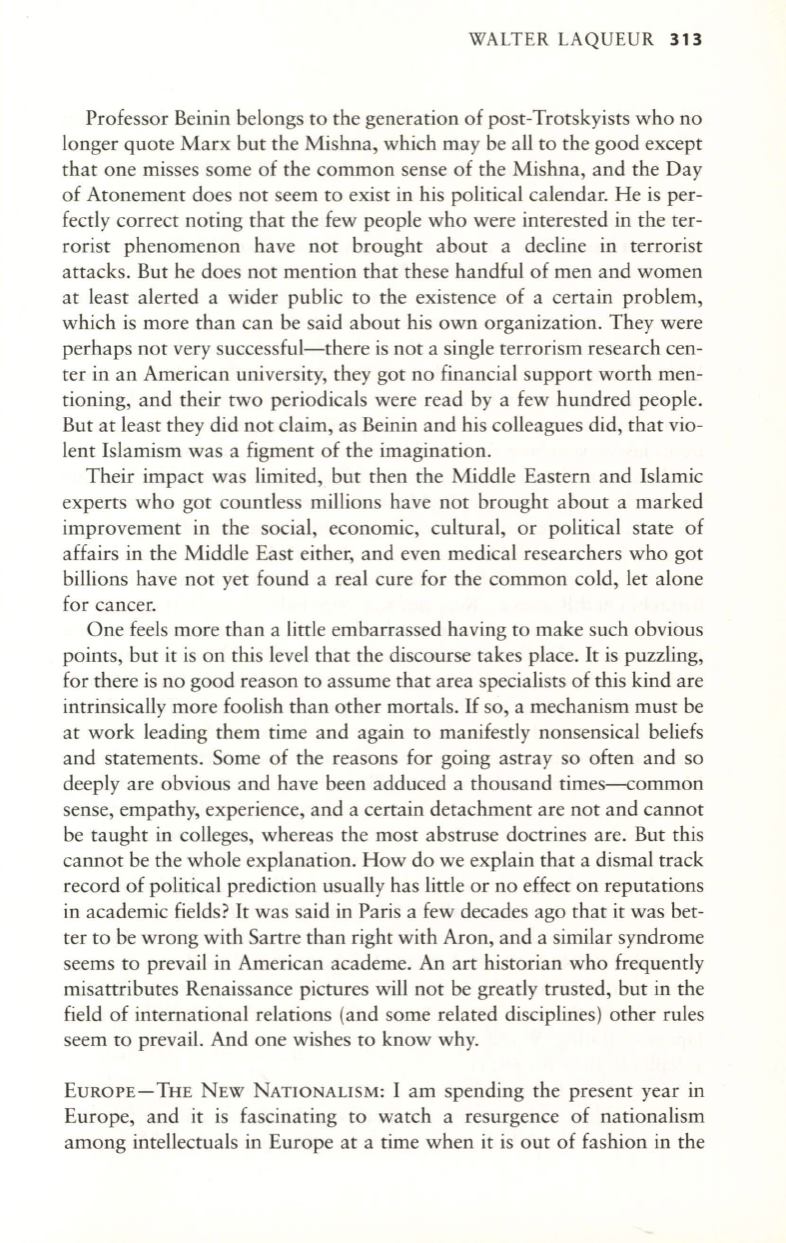
WALTER LAQUEUR
313
Professor Beinin belongs to the generation of post-Trotskyists who no
longer quote Marx but the Mishna, which may be all to the good except
that one misses some of the common sense of the Mishna, and the Day
of Atonement does not seem to exist in his political calendar. He is per–
fectly correct noting that the few people who were interested in the ter–
rorist phenomenon have not brought about a decline in terrorist
attacks. But he does not mention that these handful of men and women
at least alerted a wider public to the existence of a certain problem,
which is more than can be said about his own organization. They were
perhaps not very successful-there is not a single terrorism research cen–
ter in an American university, they got no financial support worth men–
tioning, and their two periodicals were read by a few hundred people.
But at least they did not claim, as Beinin and his colleagues did, that vio–
lent Islamism was a figment of the imagination.
Their impact was limited, but then the Middle Eastern and Islamic
experts who got countless millions have not brought about a marked
improvement in the social, economic, cultural, or political state of
affairs in the Middle East either, and even medical researchers who got
billions have not yet found a real cure for the common cold, let alone
for cancer.
One feels more than a little embarrassed having to make such obvious
points, but it is on this level that the discourse takes place. It is puzzling,
for there is no good reason to assume that area specialists of this kind are
intrinsically more foolish than other mortals.
If
so, a mechanism must be
at work leading them time and again to manifestly nonsensical beliefs
and statements. Some of the reasons for going astray so often and so
deeply are obvious and have been adduced a thousand times-common
sense, empathy, experience, and a certain detachment are not and cannot
be taught in colleges, whereas the most abstruse doctrines are. But this
cannot be the whole explanation. How do we explain that a dismal track
record of political prediction usually has little or no effect on reputations
in academic fields? It was said in Paris a few decades ago that it was bet–
ter to be wrong with Sartre than right with Aron, and a similar syndrome
seems to prevail in American academe. An art historian who frequently
misattributes Renaissance pictures will not be greatly trusted, but in the
field of international relations (and some related disciplines) other rules
seem to prevail. And one wishes to know why.
EUROPE- THE NEW NATIONALISM: I am spending the present year in
Europe, and it is fascinating to watch a resurgence of nationalism
among intellectuals in Europe at a time when it is out of fashion in the


